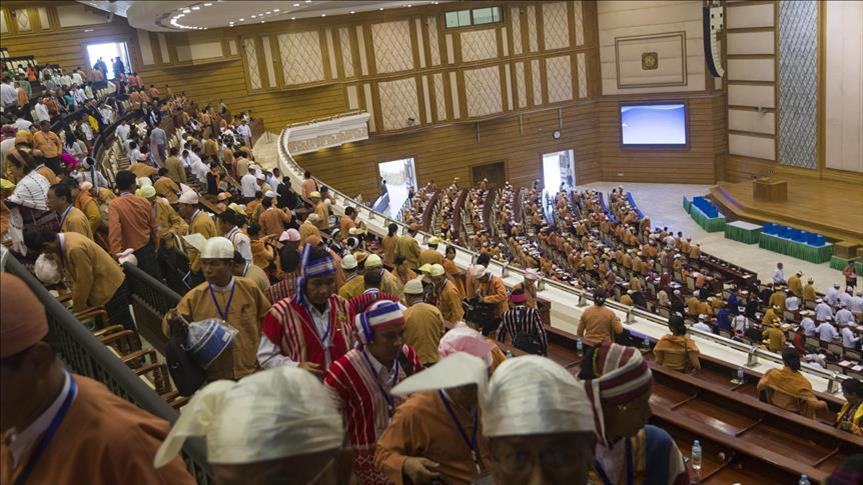Non-signatories to Nationwide Ceasefire Agreement to be welcomed at conference following military approval.

YANGON, Myanmar
The government of Myanmar is to invite all holdout ethnic rebel groups to join a peace conference scheduled to begin the last day of August, according to media reports Tuesday.
Citing Myanmar’s President Office spokesman, Zaw Htay, local media reported that all groups including non-signatories to the Nationwide Ceasefire Agreement (NCA) — a peace deal signed between the previous government and eight ethnic armed groups last year — will be invited to the Aug. 31 Union Peace Conferences, which are then set to be held every six months.
At least 13 ethnic groups, including major rebels, had refused to sign the NCA due to the exclusion of three small groups in eastern Shan State, the Myanmar National Democratic Alliance Army, the Ta’ang National Liberation Army and the Arakan Army.
Ethnic rebels have been fighting Myanmar’s central government and military for greater autonomy and self-administration since the country’s independence from Britain in 1948.
The government’s decision comes after the military agreed to allow the three groups to participate in the upcoming Conference.
The military had previously demanded that the trio completely disarm in order to join the peace process, Zaw Htay told a press conference in Nay Pyi Taw on Monday.
“The conferences will give us [opportunity to] find ways how the three groups can join,” he was quoted as saying by local newspapers.
“It is just a start of the long journey, and a breakthrough can’t be expected from this stage,” said Zaw Htay.
According to State Counselor Aung San Suu Kyi’s office, 700 delegates — including 75 from parliament, 75 from government, 150 from the military and 150 from ethnic armed organizations — will be invited to the Conferences.
Suu Kyi has made peace and national reconciliation a priority of her National League for Democracy government, which took over in late March following its landslide victory in the Nov. 8 election.
In 1947, her father, Gen. Aung San, signed the Panglong Agreement with leaders of Shan, Kachin and Chin ethnic minorities in a conference in Panglong town in Shan State to grant them autonomy.
Aung San was then the deputy chairman of Burma’s Executive Council — effectively a prime ministerial position, but still subject to the British governor’s veto.
His assassination in July 1947 prevented the agreements from reaching fruition, and many ethnic groups took up arms against the central government in wars that continued for decades and took Burma (which became Myanmar) into what became known as “the world’s longest civil war”.



